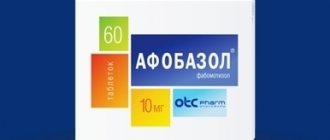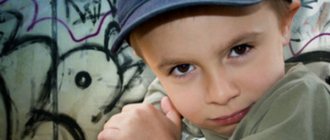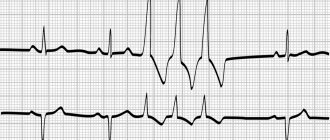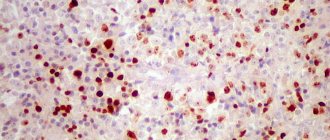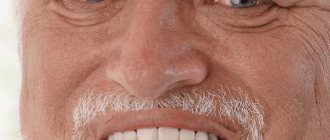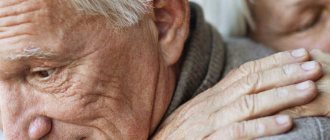Character traits
Each of us, without much thought, can easily and quickly name various character traits . This list can be very capacious. But in order to determine the characteristic type of a particular individual, one should know not only its main features, but also be able to indicate which of them are defining and which are only complementary. In modern psychology there are:
- leading traits, which in fact are the determinants of character as a whole;
- secondary traits that complement and individualize a particular personality.
Knowledge of the leading features allows us to determine the essence of the entire character , its “backbone”.
The presence of two identical traits in two people does not indicate the identity of their character. So, both have a love of truth and timidity at the same time. If the first person has fearfulness as a leading trait , then, most likely, he will not outwardly express his disapproval of the actions or behavior of others that contradict his internal beliefs. He would rather remain silent, arguing in his heart about the wrongness of those around him. And vice versa, if another’s leading quality is love of truth, and the secondary one is timidity, then he will not fail to point out to others that they are wrong, fearing only in the depths of his soul the consequences of his statements.
Characteristic features are divided into the following main groups in relation to various everyday aspects:
- attitude towards other people (tactfulness, friendliness, rudeness, sociability, isolation, sincerity, truthfulness, deceit, etc.);
- attitude to work, activity (responsibility, hard work, dishonesty, laziness, irresponsibility, etc.);
- attitude towards oneself (self-criticism, narcissism, modesty, arrogance, self-confidence, pride, vanity, etc.);
- attitude towards property and property (generosity, frugality, accuracy, carelessness, sloppiness, etc.).
The dominant group is the first (i.e., attitude towards others), since a person is a social being , the main features of his behavior are formed and manifested in society. The assessment of behavior by others influences the formation and understanding of character as a whole.
All traits are naturally dependent on each other. Thus, the presence of courage also presupposes the presence of a certain amount of initiative and generosity. A daredevil openly expresses his opinion, is able to defend it, and, as a rule, he is purposeful. A sociable person, in turn, is friendly, open, caring, has compassion and empathy for others, and is ready to listen and share advice.
Character Structure
The structure highlights features of both individual properties and those common to a certain group of people: national, age or professional. The image and way of life, features of everyday life, even language and national structure influence the formation of common features for groups and even entire nations. Thus, people of one nationality differ from another in their lifestyle, habits, type of thinking, etc. At the everyday level, typical common features create certain stereotypes. Most of us have our own idea about the inhabitants of a particular country, their habits and morals: the Italians, the French, the Japanese, etc.
All this is true to some extent: character is not an innate or hereditary trait, it is formed in the process of development of the individual as a representative of a certain group or community. It is a product of society, which can explain similar or different traits in the morals of people of different groups.
Accentuation and character of a person
Accentuation is the increased development of certain traits characteristic of an individual. Thus, a distinction is made between extroverts (open and sociable people) and introverts (closed and unsociable).
There is the following classification of character by accentuation, according to which the following types of character are distinguished:
- Hyperthymic . The defining properties of this type are: talkativeness, sociability, such people have well-developed facial expressions. Along with this, such people are often irritable and frivolous, but at the same time they are very energetic and proactive.
- Disthymic . The traits that define this type are isolation and pessimism. Such people avoid noisy companies, but highly value friendship; they have a heightened sense of injustice. When making important decisions, they are often slow and clumsy.
- Cycloid . For this type of accentuation, the defining feature is the frequent change of mood, depending on which they are either withdrawn into themselves, or, on the contrary, sociable beyond measure.
- Excitable . A distinctive feature of this type of accentuation is conflict. Such people are difficult to communicate with, are often authoritarian in the family, and are difficult to get along with in groups. They are neat and attentive when they are calm, but in a bad mood they are often irritable and hot-tempered.
- Stuck . These are very intractable individuals who love to teach everyone. They often cause various conflicts to arise. The demands they place on others (as well as on themselves) are very high.
- Pedantic . The defining feature of this type is increased (sometimes excessive) attention to detail. Such people do not strive for leadership; they are conscientious, but they like to grumble about any reason.
- Anxious . Individuals with this type are insecure. They strive to avoid conflict situations, and in cases of such they seek support from others. Friendliness and self-criticism are also defining features of their character, but their lack of willpower often makes them the subject of jokes or ridicule.
- Demonstrative . Representatives of this type of character easily make contact, can adapt to any situation, and are prone to intrigue. One of their defining properties is self-confidence, which often becomes the cause of disputes and conflicts. People with this character are artistic and courteous, they have unconventional thinking. They can often be boastful, hypocritical and selfish.
Uranian planetary type
Tall or very tall, thin bones, irregular features of an oblong face, usually large light eyes.
Uranus is the planet of geniuses. Symbolizes the power of becoming, governs the principle of transformation of the subjective into the objective. Reforms, revolutions. Disasters and injuries are associated with Uranus.
Positive qualities - rich imagination, unyielding will, strong desire for power and authority, assertiveness, altruism, perseverance in overcoming material difficulties, new ideas, originality, strong performing abilities.
Negative qualities - aloofness, unceremoniousness, independence at any cost, rebellious spirit. Poorly amenable to any kind of control, changeable, impulsive, eccentric.
By temperament - choleric.
Characterized by ups, unexpected results, and downs. A leader, but difficult to communicate and conflict-ridden. Original in his way of acting. Capable of making unexpected moves and combinations. Vulnerable places are the parathyroid glands, brain, central nervous system.
Diseases - salt deposits, injuries, fractures, tissue ruptures.
Colors - multicolor, intersection of color spots, stripes.
Temperament and character of a person
In modern psychology there are many classifications.
Types of temperament
Temperament has a huge influence on the formation of this or that type of character, which has been noted since the times of the Ancient World. Thus, Hippocrates divided all temperaments into four main types:
- A sanguine person is a cheerful, cheerful, balanced person who soberly assesses the situation and acts thoughtfully.
- A choleric person is a person who reacts quickly to external events; he can often be unreasonably harsh and inclined to commit rash acts. As a rule, choleric people are hot-tempered and unbalanced.
- A phlegmatic person is characterized by emotional stability and endurance. It is almost impossible to bring him out of a state of mental balance and peace.
- A melancholic person is an individual with increased nervous sensitivity; nervous stress and shock are strictly contraindicated for people of this type.
It should be noted, however, that in their so-called pure form these types of temperaments are extremely rare. As a rule, the temperament is of a mixed type (one type may have some traits of both phlegmatic and sanguine, both choleric and melancholic).
The relationship between temperament and human character
The words “character” and “temperament” are often compared with each other; they often replace each other.
In psychology, there are four fundamental views on the relationship between them:
- unity of temperament and character, their identification (according to the teachings of E. Kretschmer and A. Ruzicki);
- opposition of temperament and character, their antagonism (teachings of P. Viktorov, V. Virenius);
- recognition of a person’s temperament as the core or element of his character (according to S. Rubinstein, S. Gorodetsky);
- recognition of temperament as the natural basis of the entire character (according to L. Vygotsky, B. Ananyev).
Both the types of temperament and the types of a person’s character depend on the characteristics of his physiology and the type of nervous system. A person's character is formed when his temperament is quite developed. Temperament is the basis of character, but does not predetermine it. People with the same type of temperament may have different character traits. The type of temperament can influence whether it helps or hinders the development of certain character traits. For example, it is much more difficult for a phlegmatic person to cultivate sociability than a sanguine person, and a choleric person requires much more effort to become balanced than a phlegmatic person, etc.
The character and temperament of a person are closely interrelated with each other; together they constitute a person’s individuality, the foundations and description of his behavior.
Martian planetary type
Medium or tall height, strong, muscular, prominent body, large braids. The face is round, light or dark red in color. The hair is red, sandy or black - coarse, often curly.
Mars symbolizes activity, energy, expression of will, and the desire for freedom. Subjectivism and one-sidedness. Straightforwardness and pressure. Absence of doubt and categoricalness. Tendency to extremes.
Positive qualities are enthusiasm, high friendship, courage, zeal and determination in achieving goals, energy, a sharp and insightful mind. Patriotism, love of family, strong sense of brotherhood. High excitability, at the same time the ability to perform ultra-precise, jewelry work. Endurance. Negative qualities - aggressiveness, despotism, promiscuity, intolerance, hot temper, irritability, destructiveness, ruthlessness, conflict. Does not tolerate interference.
By temperament - choleric.
Capable of high concentration, but for a short time, after which a pause is required to recover. Hot-tempered and rude, but easy-going. Internally very soft and unstable.
Vulnerabilities
- cortex,
- adrenal cortex,
- head,
- breast,
- male genital organs,
- excretory organs.
Colors: red, scarlet, carmine.
Neptunian type
Beautiful slender body, smooth muscles, elongated head, light face with dark eyes, sharp features, often a hard expression, hypnotic gaze, thin hair.
Neptune symbolizes intuition, imagination, hallucinations. Everything related to the highest octave of harmony in both art and science.
Positive qualities are the finest intuition, feeling for a partner, telepathy, foresight, and even the meaning (though without explanation) of upcoming situations. Compassion. Feels good and opens up in the collective field.
Negative qualities - unstable, unpredictable, highly susceptible to mental influences, often passive, emotionally excited, capricious. Focus on the aesthetic - beauty is more important than the result. The danger of drug addiction and alcoholism.
By temperament - melancholic.
He is characterized by jewelry precision, a good feeling for a partner, and the ability to transform his psyche. Unstable, often shows too much individualism. Lack of interest in the result - he can be proud of a lost case, in which he succeeded in beautiful combinations and strikes. Non-conflicting, loved in the team.
Vulnerable places are the pineal gland (pineal gland), psychosomatic sensors, organ of extrasensory perception.
Diseases
- oxygen deficiency,
- stomach diseases,
- anemia,
- neuroses,
- energy exhaustion,
- addiction,
- alcoholism.
Colors - lilac, sea green smoky blue, shades of gray.

